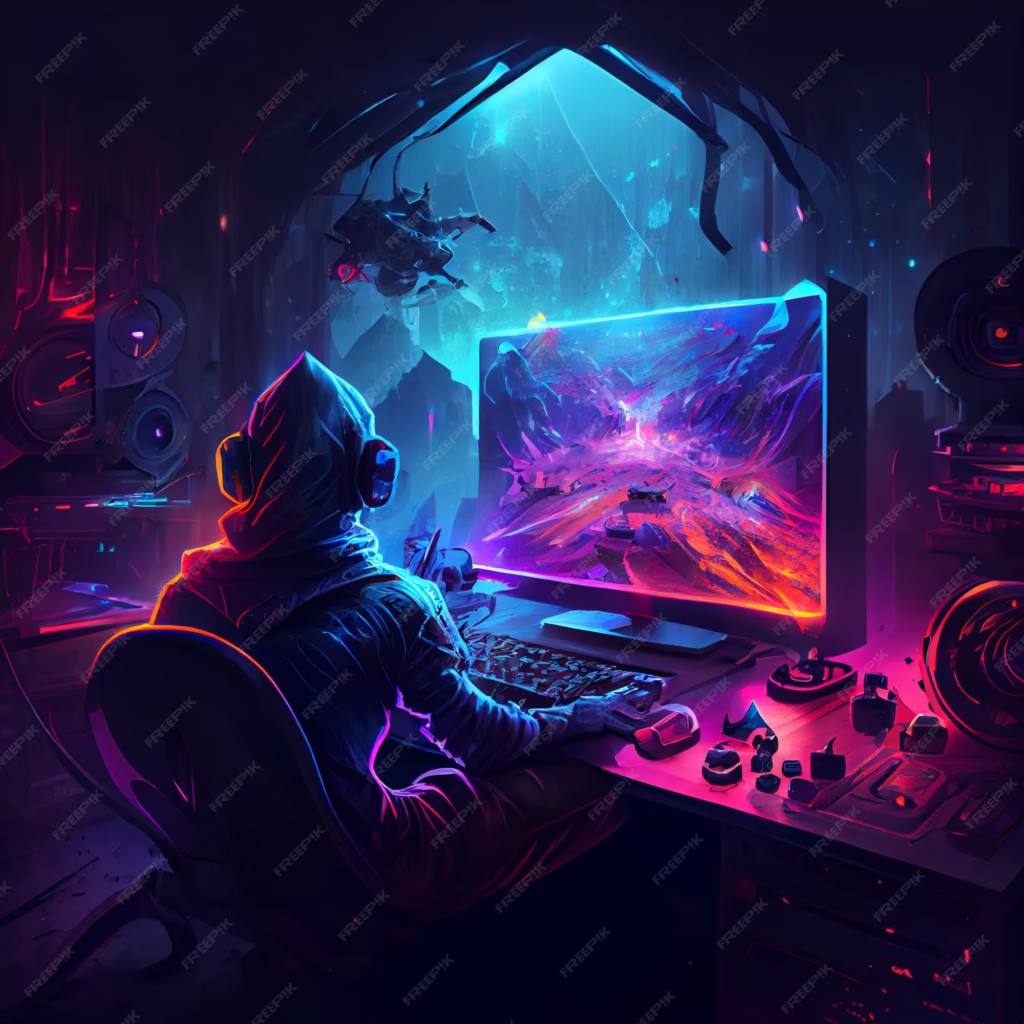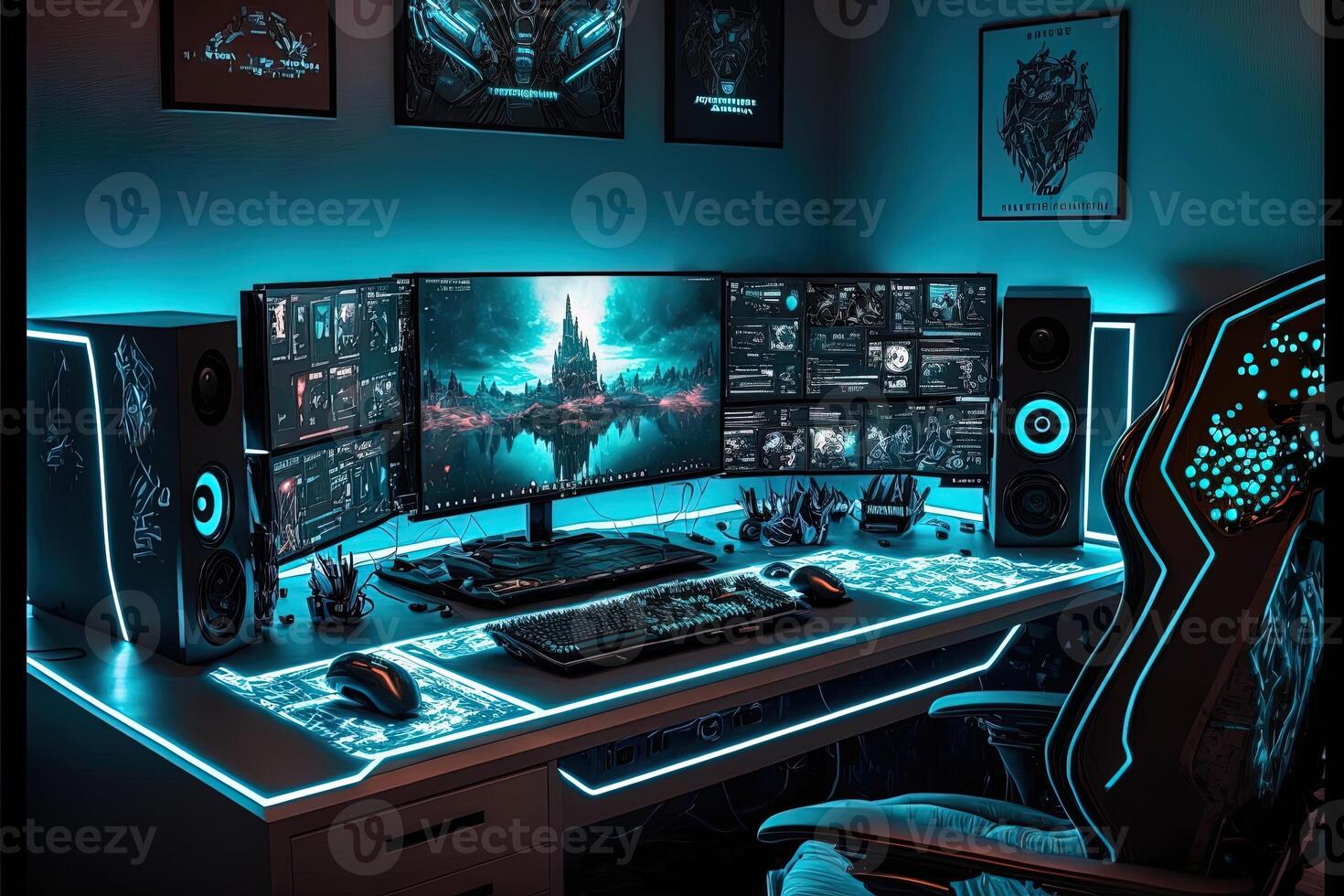The Connection Between Blue Light Exposure and Sleep Quality
Why Does Blue Light Mess With Your Sleep?
If you’ve ever struggled to fall asleep after a long night of gaming or binge-watching, blue light might be the culprit. Blue light, which is emitted from screens, suppresses melatonin production, the hormone that helps you sleep. Your brain gets tricked into thinking it’s still daytime, making it harder for you to wind down. So, instead of feeling sleepy, you stay wide awake, staring at the ceiling and wondering why you can’t doze off.
Melatonin is your body’s natural signal to prepare for rest, and blue light keeps that signal from working properly. Without enough melatonin, falling asleep takes longer, and the quality of your sleep drops. This means you wake up groggy, unfocused, and far from ready to take on the day (or another gaming session). Cutting down on blue light exposure before bedtime can help your body stick to its natural sleep rhythm.
How Late-Night Screen Time Affects Your Sleep Cycle
Think about your sleep cycle like a well-planned game strategy. When everything is in place, you wake up feeling refreshed and ready to tackle the day. But too much blue light exposure throws that strategy out the window, leading to restless nights and groggy mornings. This happens because your body has an internal clock, known as the circadian rhythm, that tells you when to wake up and when to sleep.
When blue light enters the picture, it delays your sleep schedule by tricking your brain into staying alert. This not only makes it harder to fall asleep but also reduces the time you spend in deep sleep—the most restful and restorative part of the sleep cycle. The less deep sleep you get, the more tired you’ll feel, even if you technically get enough hours of rest.
And let’s be honest—who actually stops using their phone, computer, or console an hour before bed? Most of us scroll through social media, watch one more episode, or play just one more round. But that late-night screen time could be making it even harder for you to get the quality sleep you need.
Tips to Reduce Blue Light Exposure Before Bed
Luckily, you don’t have to give up your devices completely to get better sleep. There are plenty of ways to minimize blue light exposure while still enjoying your favorite activities. One of the easiest solutions is using blue light blocking glasses, which filter out the harmful blue wavelengths and help maintain healthy melatonin levels. By wearing these glasses in the evening, you can enjoy gaming or watching your favorite shows without totally wrecking your sleep schedule.
Another effective method is switching your devices to night mode. Most smartphones, tablets, and computers have a built-in blue light filter that reduces the amount of blue light emitted from your screen. This won’t block everything, but it can make a noticeable difference over time.
You can also try dimming the lights around you before bed. Bright artificial lighting can contribute to sleep disruption just like screens do. Opting for warm, dim lighting in the evening can help signal to your body that it’s time to start winding down. Even better, replace harsh overhead lights with soft bedside lamps or LED bulbs designed for night time use.
Establishing a Healthy Sleep Routine for Gamers
If you’re a gamer, you’ve probably had those nights where “just one more match” turns into a 3 AM grind. While gaming marathons are fun, your sleep schedule might not agree. Poor sleep can mess with your focus, reaction time, and overall energy levels—things you definitely don’t want to lose when aiming for victory. The good news? You don’t have to give up gaming to get better sleep. By making a few simple changes, you can level up both your sleep and your gaming performance.
Set a Gaming Curfew (Yes, Really!)
We get it—cutting off your gaming session at a reasonable time isn’t always easy. But setting a curfew for screen time can help your body wind down naturally. Try to log off at least 30–60 minutes before bed to give your brain a chance to relax. If you’re mid-game and can’t stop, start winding down by switching to a less intense, slower-paced game. Fast action and bright screens keep your mind wired, so easing into something low-key can help transition into sleep mode.
Reduce Blue Light Exposure Before Bed
Your gaming setup is likely packed with bright LED screens, and that blue light can mess with your melatonin production, making it harder to fall asleep. Investing in blue light blocking glasses can help reduce the impact while letting you game longer without wrecking your sleep schedule. You can also activate blue light filters on your devices or dim your screen brightness in the evening. If you want to go the extra mile, try using warm-colored ambient lighting to create a softer, more relaxing atmosphere.
Create a Gamer-Friendly Sleep Environment
Your gaming space and your sleep space should feel different. If you game in your bedroom, make sure your setup doesn’t keep you in “alert mode” all night. Turn off any bright LED lights, keep your room cool and dark, and use blackout curtains if needed. A good quality mattress and pillow can make a huge difference, especially if you spend long hours sitting in a chair. Think of your sleep setup like a high-end gaming rig—if you want peak performance, you need the right gear.
Stick to a Sleep Schedule
Your body loves consistency, even if your game schedules are all over the place. Try to go to bed and wake up at the same time every day, even on weekends. This helps regulate your internal clock so you fall asleep faster and wake up feeling more refreshed. If you’re up late gaming, don’t try to “fix” your schedule with random naps—they might just make things worse. Instead, aim for gradual adjustments until you find a sleep routine that fits your lifestyle.
Wind Down with a Non-Screen Activity
Scrolling through social media or watching game streams right before bed can keep your brain overstimulated. Instead, try swapping your pre-sleep routine with activities that relax you, like reading, stretching, or listening to calming music. If you need to do something gaming-related, try a gaming podcast or an audiobook about game design—just avoid screens and bright lights.
Fuel Your Body for Better Sleep
Late-night energy drinks and snacks might help you power through a long session, but they can also disrupt your sleep. Caffeine stays in your system for hours, so try to cut it off at least six hours before bed. If you get hungry at night, go for light snacks like nuts, yogurt, or fruit instead of greasy or sugary foods that might keep you awake. Hydration is also key—drinking enough water throughout the day can help improve sleep quality.
Final Boss: Managing Stress and Overstimulation
Intense gaming sessions can leave you pumped with adrenaline, especially if you’re playing competitive or horror games. If you find yourself too wired to sleep, take a few deep breaths, meditate, or journal about your gaming session to clear your mind. Reducing stress before bed can help you sleep deeper and wake up feeling more refreshed.
How Blue Light Blocking Glasses Can Help You Sleep Better
If you’ve ever struggled to fall asleep after a long gaming session or late-night binge-watch, blue light might be the culprit. The screens you use every day—your gaming monitor, phone, TV, and even your tablet—emit blue light that tricks your brain into thinking it’s still daytime. That’s where blue light blocking glasses come in. They help filter out the harsh blue light, allowing your body to wind down naturally and making it easier to get the restful sleep you deserve.
The Science Behind Blue Light and Sleep Disruption
Your body relies on a natural rhythm called the circadian clock, which tells you when to wake up and when to sleep. Blue light from screens interferes with this system by suppressing melatonin, the hormone responsible for making you feel sleepy. This is why you can feel wide awake even after hours of gaming, only to find yourself tossing and turning when you finally hit the bed.
Blue light blocking glasses help solve this issue by reducing the amount of blue light reaching your eyes. They allow your melatonin levels to stay balanced, signaling your body that it’s time to wind down. By wearing them in the evening, you can still enjoy gaming, working, or scrolling through social media without completely disrupting your sleep schedule.
Gaming Late? Protect Your Eyes and Your Sleep
For gamers, avoiding screens at night isn’t always an option. Whether you’re in the middle of an intense battle or catching up on a new RPG, cutting off screen time hours before bed just isn’t realistic. Blue light blocking glasses act as a shield, helping you game longer without sacrificing your sleep quality.
These glasses reduce eye strain, making those long gaming sessions more comfortable while also preventing the headaches and dry eyes that often come from staring at screens too long. If you wear them consistently, you’ll notice that you feel less exhausted after a late-night grind and that falling asleep becomes much easier.
How Blue Light Blocking Glasses Fit Into a Nighttime Routine
If you want to maximize the benefits of blue light blocking glasses, timing is everything. Try putting them on about two to three hours before bed, especially if you’re using screens during that time. This helps your body start producing melatonin naturally, so by the time you’re ready to sleep, your brain is already in wind-down mode.
Pairing them with other good sleep habits can take things to the next level. Consider dimming your room lights in the evening, using warm-colored LED bulbs, or setting your screens to night mode. The more you reduce blue light exposure before bed, the easier it will be to fall asleep and wake up feeling refreshed.
Better Sleep Leads to Better Performance
Whether you’re a competitive gamer, a content creator, or just someone who enjoys winding down with a good show, sleep plays a huge role in performance. Poor sleep leads to slower reaction times, reduced focus, and less energy throughout the day. Blue light blocking glasses help improve sleep quality, which means better concentration, quicker reflexes, and an overall boost in your gaming skills.
By making a simple change—wearing blue light blocking glasses in the evening—you can keep gaming, working, or browsing without paying the price in lost sleep. Think of them as an essential upgrade, just like a high-refresh-rate monitor or an ergonomic chair, but for your health.
Additional Sleep-Enhancing Tips for Gamers
Gaming late into the night is fun—until you realize you’re running on three hours of sleep and your reaction time is shot. While blue light blocking glasses help, there are other ways to boost your sleep quality without sacrificing your gaming sessions. From adjusting your environment to tweaking your nightly habits, these sleep-enhancing tips will help you wake up feeling rested and ready to dominate.
Set a Consistent Sleep Schedule (Yes, Even for Gamers)
Your body thrives on routine, and an inconsistent sleep schedule can throw everything out of sync. If you go to bed at 3 AM one night and 10 PM the next, your body won’t know what to expect. Try setting a consistent bedtime and wake-up time, even on weekends. You don’t have to be extreme—just aim for a window that works with your gaming habits while still getting at least 7 hours of sleep.
A great trick is to set a wind-down timer. If you know you want to be in bed by midnight, set an alarm for 11:30 PM as a reminder to start shutting things down. It’s easy to lose track of time when you’re in the middle of a ranked match or an open-world adventure, but a little discipline goes a long way in keeping your sleep on track.
Create a Gamer-Friendly Sleep Environment
Your gaming setup is optimized for performance, so why not do the same for your sleep space? A cluttered, noisy, or overly bright room can make it harder to relax and fall asleep. Start by keeping your room dark—blackout curtains work wonders, and if you like a little ambient light, go for warm, dim LEDs instead of bright blues or whites.
Temperature also plays a big role in sleep quality. A cool room (around 18-20°C or 65-68°F) is ideal for sleeping, so don’t let your gaming rig turn your bedroom into a sauna. If your setup runs hot, a small fan can keep things comfortable while also providing some soothing white noise.
Finally, invest in a comfortable mattress and pillows. You wouldn’t game on a laggy monitor, so why sleep on a bed that makes you wake up sore? The better your sleep setup, the easier it is to fall asleep after an intense gaming session.
Avoid Energy Drinks and Late-Night Snacks
Gaming and energy drinks go hand in hand, but that late-night caffeine boost could be wrecking your sleep. Caffeine stays in your system for hours, so if you’re chugging an energy drink at midnight, you might still feel wired at 3 AM. Try switching to caffeine-free options in the evening, like herbal tea or even just water, to avoid that restless, jittery feeling when you’re trying to sleep.
Late-night snacks can also mess with your sleep. While it’s tempting to grab a bag of chips or some pizza mid-session, heavy or sugary foods can make it harder for your body to wind down. If you’re hungry, go for something light like a banana or a handful of nuts. You’ll sleep better and wake up feeling less sluggish.
Take Screen Breaks and Stretch Before Bed
Long gaming sessions can make your muscles tense and your posture terrible, both of which can make it harder to relax before bed. Taking short breaks every hour to stand up, stretch, or walk around can help prevent stiffness and reduce eye strain.
A quick stretching routine before bed can also make a big difference. Loosening up your shoulders, neck, and back after hours of gaming can help your body transition into rest mode. You don’t have to do a full workout—just a few simple stretches can help you feel more comfortable when you lay down to sleep.



